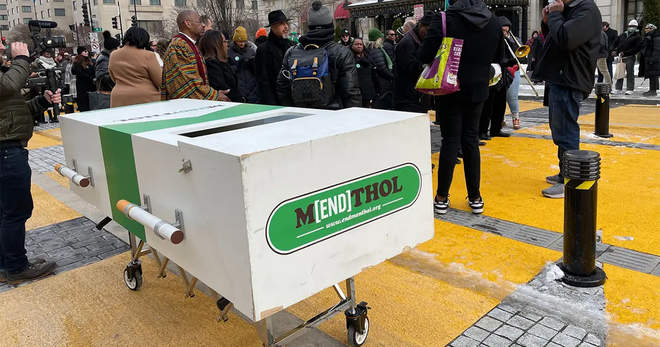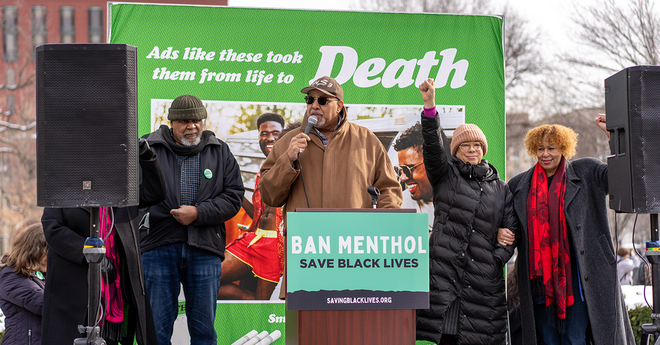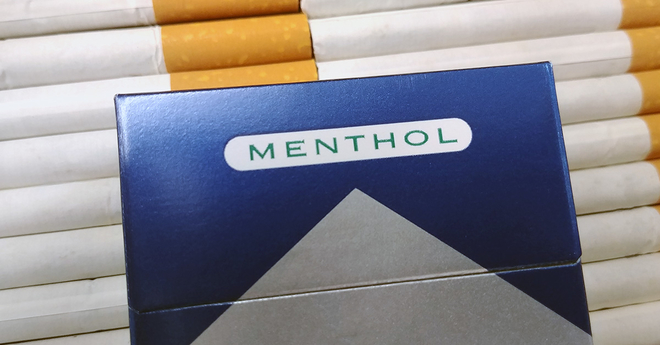Inaction in the face of opportunities to ban menthol cigarettes
The Food and Drug Administration has repeatedly failed to act on banning menthol cigarettes, even though the agency has data that show the products harm public health.
Although the Family Smoking Prevention and Tobacco Control Act banned flavored cigarettes in 2009, lawmakers granted an exemption to menthol cigarettes, which remain the only flavored cigarette still on the market. The act gave authority to regulate tobacco products to the FDA, which had the opportunity to ban menthol in 2011, but didn’t due to a “lack of research.”
However, a 2011 report from the FDA Tobacco Products Scientific Advisory Committee concluded that “the removal of menthol cigarettes from the marketplace would benefit public health in the United States.” The FDA published its own report two years later, which found that “menthol cigarettes pose a public health risk above that seen with non-menthol cigarettes.”
Truth Initiative® has repeatedly called on the FDA to ban menthol, which makes cigarettes easier to smoke and harder to quit. The most recent effort to push for a menthol cigarette ban has brought DoSomething.org and actor Dexter Darden together with truth® for #MyBigRegret, a campaign that enlists youth to urge the FDA to avenge its biggest regret by banning menthol now.
Research shows that menthol cigarettes:
- Increase smoking initiation among youth and young adults
- Cause greater addiction
- Decrease success in quitting smoking
- Disproportionately affect certain groups, including African-Americans and young people — for example, nearly 90 percent of all African-American smokers use menthol cigarettes
- Slow declines in overall smoking rates
- Are linked to mental illness in adults and depression and anxiety in young adults
Despite these findings, the FDA has yet to propose any regulation to remove menthol cigarettes from the market. In the meantime, some state and local governments have stepped up to enact their own menthol and flavor bans (learn more about what it takes to pass these policies).
Research shows that if menthol cigarettes were banned nationally:
- Over half a million smoking-attributable deaths would be prevented by 2050
- Almost 39 percent of all menthol smokers and 44.5 percent of African-American menthol smokers would try to quit
- Nearly 65 percent of young adult menthol smokers between 18 and 24 would quit smoking and not use any other products
In July 2017, four years after the FDA requested public comment for additional information to help make informed decisions about menthol, the agency announced that it would again request public comment on the role that menthol in tobacco products plays in attracting youth and in helping some smokers switch to potentially less harmful forms of nicotine delivery.
To participate in the #MyBigRegret campaign, young people can tweet their big regrets since 2011 using #MyBigRegret, tagging @FDATobacco and linking to a truth petition to get menthol tobacco products off the market. #MyBigRegret follows the truth Finish Flavors tour, an effort to raise awareness of the impact of menthol and flavored tobacco products and the marketing tactics tobacco companies use to attract young smokers.
By Dec. 28, participants can sign up for the #MyBigRegret campaign — at DoSomething.org or by texting REGRET to 38383 — and upload a screenshot of their tweet for the chance to win a $5,000 scholarship.
For more information on #MyBigRegret, visit www.dosomething.org/regret. For more information on menthol, read our fact sheet.
More in traditional tobacco products
Want support quitting? Join EX Program
By clicking JOIN, you agree to the Terms, Text Message Terms and Privacy Policy.
Msg&Data rates may apply; msgs are automated.



